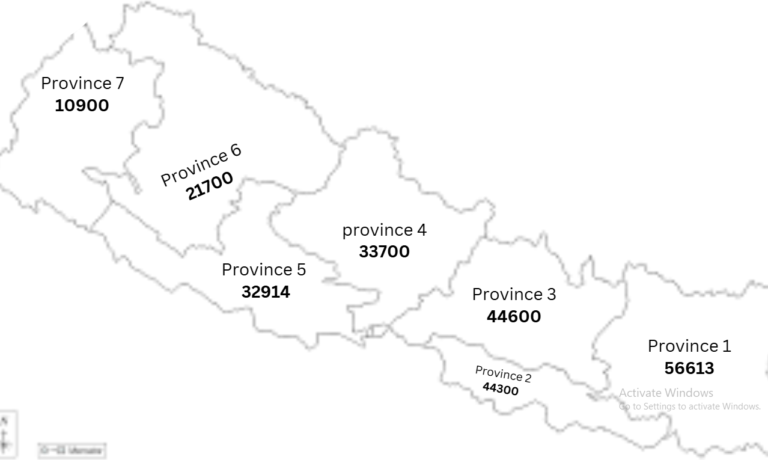Bachelor of Education in Information Communication Technology in Nepal


Bachelor of Education in Information Communication Technology (B.Ed. ICT) is a specialized academic program that has rapidly gained traction in Nepal. With the evolving demands of the 21st-century digital age, this degree is more than just a formal education—it’s a gateway to reshaping how knowledge is delivered and how technology is integrated into teaching. Nepal, recognizing the pivotal role ICT plays in transforming education, has made strategic moves to incorporate this stream into mainstream university education.
This course focuses on empowering future educators with skills in both teaching methodologies and ICT tools. Whether it’s designing digital content, operating Learning Management Systems (LMS), or integrating multimedia tools into the classroom—B.Ed. ICT graduates are trained to lead the next educational revolution in Nepal.
Introduction to B.Ed. in ICT in Nepal
What is B.Ed. in ICT?
B.Ed. in Information Communication Technology is a four-year undergraduate degree focusing on equipping students with the technical and pedagogical skills needed to teach ICT in schools and higher education. Unlike a traditional B.Ed. that may focus on generic pedagogy or specific school subjects, this course dives deep into computing fundamentals, educational technologies, and innovative teaching strategies involving tech.
The curriculum typically includes:
- Basics of computer science
- ICT tools for teaching and learning
- Programming languages (like Python or C++)
- Instructional design using tech
- E-learning platforms and strategies
- Research methodology in educational ICT
This hybrid approach—blending core education principles with advanced ICT training—creates a new breed of educators ready to handle smart classrooms, online learning environments, and digital curriculum design.
Why is it Important in the Nepali Context?
In Nepal, digital literacy is still evolving. While urban areas have started integrating technology into schools, rural regions still face a digital divide. Introducing B.Ed. in ICT is a strategic move by Nepali universities to produce graduates who can bridge this gap.
Here’s why it matters:
- Educational Equity: ICT can offer remote learning solutions to underdeveloped areas.
- Curriculum Modernization: As Nepal revamps its national curriculum, integrating ICT is key.
- Skilled Workforce: B.Ed. ICT graduates are needed in schools, training centers, NGOs, and edtech startups.
Moreover, Nepal’s National Education Policy 2019 encourages integrating ICT into every level of education. With the recent push toward digital governance and e-learning post-COVID, B.Ed. ICT isn’t just an option—it’s a necessity.
Scope and Relevance of ICT Education in Nepal
Growth of ICT in Nepal’s Education System
The last decade has seen rapid technological adoption in Nepal. Schools, especially private ones in cities like Kathmandu, Pokhara, and Butwal, have already started implementing smart boards, e-learning platforms, and digital examination systems. ICT education is no longer a “bonus”—it’s becoming a core requirement.
Nepal’s Ministry of Education, Science, and Technology (MoEST) has launched various programs to boost ICT adoption in public schools. Some of these initiatives include:
- One Laptop per Child Project
- ICT Lab Development in Rural Schools
- E-library and Digital Textbooks
This technological influx has triggered the need for competent ICT educators. A B.Ed. in ICT aligns with this national movement, ensuring graduates are job-ready for these roles.
Demand for ICT Teachers and Professionals
The job market for ICT professionals with an education background is robust. Here’s a quick look at career prospects for B.Ed. ICT graduates:
| Career Path | Description |
|---|---|
| ICT Teacher | Teach computer science and digital literacy in schools |
| E-learning Developer | Create and manage digital learning content |
| LMS Administrator | Manage online learning platforms like Moodle |
| Curriculum Designer | Develop ICT-integrated curriculum frameworks |
| ICT Trainer | Train teachers on using technology in classrooms |
| Education Consultant | Work with NGOs and edtech companies on ICT initiatives |
With more public schools hiring ICT instructors and private institutions offering competitive salaries, B.Ed. in ICT opens doors beyond the classroom too.
Eligibility Criteria for B.Ed. in ICT in Nepal
Academic Qualifications Required
Eligibility is relatively straightforward, but it varies slightly by university. Here’s the general requirement:
- Completion of +2 or Equivalent: Candidates must have passed their Higher Secondary Education (+2), preferably with a background in science or management, though humanities students are also accepted in many institutions.
- Minimum Grade Requirement: Generally, a minimum GPA of 2.0 or Second Division in aggregate is expected.
- English and Math Proficiency: Some universities may assess your basic knowledge in these subjects during entrance tests.
Students who have completed technical courses (like a Diploma in Computer Engineering) are often encouraged to apply, as the foundational knowledge helps during the course.
Age Limit and Admission Policies
There’s no strict age limit to enroll in B.Ed. ICT, making it flexible for adult learners and career changers. Some universities, especially government-funded ones, might prioritize younger students (under 25) for scholarship quotas.
Key policies include:
- Merit-Based Admission: Entrance exam + academic score combination.
- Reservation and Quotas: Special quotas exist for women, Dalits, indigenous communities, and Madhesi groups in public universities.
- Lateral Entry (if applicable): In rare cases, diploma holders may get partial credit transfers.
Universities also require applicants to submit their academic transcripts, character certificates, and a Statement of Purpose (SOP) outlining their interest in ICT education.
Admission Process and Entrance Exams
Application Timeline and Procedures
Admissions generally open once a year, around August to October, with classes starting between November and December.
Here’s the typical timeline:
- Announcement of Admission Notice – Published on university websites and national newspapers.
- Online/Offline Form Submission – With academic documents and entrance fee payment.
- Entrance Exam Conducted – Usually 100 marks; includes ICT aptitude, general knowledge, pedagogy.
- Merit List Published – Based on entrance score + +2 GPA.
- Admission and Orientation – Selected candidates submit final documents and join orientation week.
Some universities offer online registration, making the process smoother for students outside Kathmandu Valley.
Entrance Exams and Selection Process
The entrance exam isn’t overly competitive but tests foundational skills, typically in:
- Computer Basics
- ICT in Education
- General Pedagogy
- Logical Reasoning and English
Sample syllabus breakdown:
| Subject Area | Weightage |
|---|---|
| Computer Fundamentals | 30% |
| Educational Technology | 25% |
| English Language | 20% |
| Logical & Analytical Skills | 15% |
| GK & Current Affairs | 10% |
The selection process is purely merit-based for most universities. However, private colleges may have direct admission policies based on academic records and interviews.
Universities and Colleges Offering B.Ed. in ICT in Nepal
Tribhuvan University Affiliated Colleges
Tribhuvan University (TU), Nepal’s oldest and most prominent public university, has taken a major initiative to offer B.Ed. in Information Communication Technology across its affiliated campuses. Under the Faculty of Education, the B.Ed. ICT program is available in both urban and semi-urban colleges, ensuring accessibility to students from various regions.
Some of the top TU-affiliated colleges offering B.Ed. in ICT include:
- Sanothimi Campus, Bhaktapur
- Mahendra Ratna Campus, Ilam
- Butwal Multiple Campus
- Dipayal Campus, Doti
- Janata Multiple Campus, Itahari
These institutions follow the standardized B.Ed. ICT curriculum set by TU, ensuring uniform quality in instruction and examination. What’s notable is the integration of both practical labs and teaching pedagogy in the program. TU ensures that students receive hands-on training with tools like:
- MS Office Suite
- Database systems (MySQL, Oracle)
- Learning Management Systems
- Basic Programming Languages (Python, Java)
- EdTech platforms (Google Classroom, Moodle)
Moreover, TU-affiliated colleges often organize teaching practicums where students are placed in local schools for supervised ICT teaching sessions. This allows for real-world experience even before graduation.
Another highlight is affordability. Being government institutions, the tuition fee for B.Ed. ICT under TU is relatively lower compared to private universities—making it a feasible option for many.
Other Recognized Institutions
Beyond Tribhuvan University, several other reputable academic bodies are now offering B.Ed. in ICT with their own course structures, adapted to current global and local ICT needs. Here’s a look at some of the key players:
- Kathmandu University (KU)
KU offers a Bachelor’s program focused on ICT integration in education through its School of Education. While not exactly titled “B.Ed. ICT,” it delivers similar competencies through its innovative curriculum and international collaborations. - Purbanchal University
Some PU-affiliated colleges have started piloting ICT-based education programs. The curriculum has a strong emphasis on rural ICT deployment, mobile learning, and digital pedagogy. - Pokhara University
Known for its modern infrastructure, PU is expanding its academic offerings in the education sector, with ICT-based modules being integrated into its B.Ed. and BICTE (Bachelor of ICT in Education) programs. - Private Colleges and EdTech Institutions
Colleges like Texas International College, Kantipur City College, and Prime College are launching B.Ed. ICT programs with industry collaboration and enhanced lab facilities. - Open and Distance Learning Institutions
With the rise of remote education, some organizations have started offering B.Ed. ICT via distance learning. Nepal Open University, for instance, provides online modules for remote learners with LMS support and flexible exams.
Choosing the right college involves comparing aspects like:
- Faculty expertise
- Practical exposure
- Internship and practicum programs
- Scholarships and financial aid
- Job placement support
The diversity of institutions now offering B.Ed. ICT in Nepal makes the program more accessible than ever, regardless of geographic or economic constraints.
Curriculum and Subjects in B.Ed. ICT Program
Core Course Structure
The B.Ed. ICT program in Nepal generally spans four academic years, divided into eight semesters. The curriculum is designed to blend theoretical knowledge, hands-on ICT skills, and teaching methodologies. Here’s a simplified structure of what the course looks like:
Year 1: Foundation and Basics
- Introduction to Education
- Computer Fundamentals
- Teaching Pedagogy
- Digital Literacy Skills
- Mathematics for Computing
Year 2: Intermediate Specialization
- Educational Psychology
- Database Management Systems
- Web Development Basics
- ICT in Education
- Instructional Design
Year 3: Advanced Technologies
- Programming in Python or C++
- Data Communication and Networking
- Multimedia Tools in Teaching
- Research Methodology
- ICT Policy and Ethics
Year 4: Professional Application
- E-learning and LMS
- Practicum and School Internship
- Final Year Project
- Curriculum Development
- ICT Resource Management
The curriculum is frequently updated to include emerging technologies such as AI in education, cloud computing for schools, and even mobile learning. This ensures students remain industry-relevant and adaptable.
Teaching Methodologies and Practical Work
One of the standout features of B.Ed. in ICT is the emphasis on practical learning. Students don’t just read about technology—they use it. Some key methodologies include:
- Lab-Based Sessions: Every theoretical subject is paired with a lab-based counterpart.
- Microteaching and Demo Classes: Students simulate classroom environments to practice teaching with tech.
- Internship Programs: Usually held in the final year, these are real-time teaching experiences in schools.
- Group Projects and Seminars: Promote collaborative learning and innovation.
Instructors often use blended learning models in their own teaching—flipping classrooms, assigning online tasks, and encouraging students to use tools like Kahoot, Google Slides, or Canvas.
Such a curriculum prepares students not only for teaching roles but also for leadership in digital education initiatives.
Scholarships and Financial Aid for B.Ed. ICT Students
Government Scholarships
Several government-funded scholarships are available for B.Ed. ICT students, especially in Tribhuvan University and its constituent colleges. The most common types include:
- Merit-Based Scholarships: Awarded based on entrance exam scores and GPA.
- Equity-Based Quotas: For women, Dalits, Janajatis, Madhesis, and students from Karnali or remote districts.
- Disability and Minority Scholarships: Aimed at encouraging participation from differently-abled students or marginalized groups.
These scholarships often cover:
- Full or partial tuition fees
- Monthly stipends
- Book and lab material allowances
Students applying for scholarships must usually submit proof of income, citizenship, recommendation letters, and sometimes appear for interviews.
Private and NGO-Based Funding
Apart from government aid, some private organizations and NGOs offer scholarships for deserving ICT students, especially those promoting women in technology. Notable programs include:
- Nagarik Aawaz Education Fund
- Room to Read Girls’ Scholarship
- Wedu Mentorship and Financing
Students enrolled in education technology programs are often considered a priority because of their potential impact on rural and underprivileged communities through ICT literacy.
Work-Study and Part-Time Jobs
Many ICT colleges in Nepal have partnerships with local businesses and schools, allowing students to work part-time as lab assistants, tutors, or tech support staff. These opportunities not only help financially but also strengthen practical skills.
Additionally, international donor agencies and embassies sometimes support ICT in Education projects. Students aligned with these programs through internships or research are eligible for grants and short-term scholarships.
Challenges in Pursuing B.Ed. ICT in Nepal
Infrastructure and Digital Divide
While the curriculum is progressive, implementation across the country faces hurdles—especially in rural areas where:
- Lab equipment is outdated
- Internet access is unreliable
- Power supply issues persist
Many colleges lack sufficient computers or networking tools to offer a quality experience. This puts students in remote regions at a disadvantage.
Faculty and Curriculum Gaps
There’s a shortage of experienced instructors capable of teaching both pedagogy and technology. As ICT evolves, keeping the syllabus up-to-date becomes a challenge for institutions with limited resources.
Another issue is the lack of industry alignment. While the course trains students to be ICT teachers, it often doesn’t address broader tech-sector needs like cloud computing, cybersecurity, or AI in education.
Perception and Career Uncertainty
Despite its growing popularity, B.Ed. ICT is still seen by some as a “lesser alternative” to core engineering or IT degrees. Many students worry about:
- Job market saturation
- Unclear salary benchmarks
- Recognition by private schools or international employers
However, with rising edtech initiatives and government investment in ICT, these perceptions are slowly changing.
Career Opportunities after B.Ed. in ICT in Nepal
Job Prospects in Education and Beyond
Graduating with a Bachelor of Education in Information Communication Technology opens doors to diverse career options in Nepal. While many opt for teaching, the scope of employment stretches far beyond traditional classrooms. Here’s a breakdown of potential career paths:
1. ICT Teacher in Schools
Public and private schools are actively hiring trained ICT educators, especially those with a B.Ed. ICT background. Subjects typically taught include:
- Basic computing
- Internet and email use
- Office applications
- Computer programming (at secondary level)
With the National Curriculum Framework emphasizing digital literacy, this role is in high demand.
2. Curriculum Developer and Instructional Designer
B.Ed. ICT graduates are uniquely qualified to help design curriculums that blend traditional education with modern digital tools. You could work with:
- Textbook publishers
- Government agencies
- NGOs
- Private edtech firms
3. E-learning Specialist or LMS Administrator
As online learning grows in Nepal, Learning Management Systems (LMS) like Moodle or Google Classroom are becoming common. Your skills in managing digital classrooms will make you eligible for:
- LMS setup and customization
- E-content creation
- Monitoring student engagement online
4. Educational Consultant
NGOs and donor-funded organizations often run digital literacy campaigns in rural Nepal. B.Ed. ICT graduates can play leadership roles in training school teachers, managing ICT centers, or implementing technology projects.
5. IT Support Roles in Education Sector
While not the main path, some students move into IT roles in schools, colleges, or educational startups:
- Network administrators
- Computer lab supervisors
- Educational software testers
Salary Expectations
Starting salaries vary depending on where you work:
| Job Role | Monthly Salary Range (NPR) |
|---|---|
| ICT Teacher (Public School) | 20,000 – 35,000 |
| ICT Teacher (Private School) | 25,000 – 50,000 |
| E-learning Specialist | 40,000 – 70,000 |
| LMS Administrator | 30,000 – 60,000 |
| NGO/INGO Project Roles | 50,000 – 100,000 |
With experience and certifications, these numbers can rise significantly.
Comparing B.Ed. ICT with Other ICT Degrees in Nepal
B.Ed. ICT vs. BICTE vs. BIT
To help you decide which course aligns with your goals, here’s a detailed comparison of similar ICT-focused degrees:
| Feature | B.Ed. ICT | BICTE | BIT |
|---|---|---|---|
| Full Form | Bachelor of Education in ICT | Bachelor of ICT in Education | Bachelor in Information Technology |
| Focus | ICT + Pedagogy | ICT + Education Policy | Core IT skills |
| Duration | 4 years | 3–4 years | 4 years |
| Suitable For | Future ICT teachers | Policy professionals in education tech | IT professionals, software engineers |
| Practical Components | School teaching practicum | Research & community ICT projects | Software labs, internships |
| Career Outcome | ICT teacher, LMS trainer | Digital literacy advocate, researcher | Software developer, system admin |
While B.Ed. ICT is perfect for aspiring educators, BICTE suits those wanting to enter ICT education policy or advocacy. BIT, on the other hand, is purely technical, more suited for those interested in hardcore programming, system design, or network management.
If you’re passionate about teaching and using tech as a medium to make a difference in Nepal’s education system, B.Ed. ICT is the most relevant choice.
Government Policies and Future of ICT Education in Nepal
National Education Policy and ICT Integration
The National Education Policy 2019 explicitly promotes the integration of ICT in all teaching-learning activities across Nepal. Key initiatives supporting this goal include:
- “School Sector Development Plan (SSDP)”: Aims to digitize classrooms and train teachers.
- E-Governance Implementation: Encourages digitization of administrative tasks in schools.
- ICT Labs in Rural Schools: Government budgets have been allocated to build computer labs and connect schools to the internet.
Role of the Ministry of Education, Science and Technology (MoEST)
MoEST has actively partnered with development agencies to promote ICT education. Current projects include:
- Training teachers in digital pedagogy
- Developing e-content in Nepali language
- Distributing digital devices and open educational resources (OER)
This trend will create more opportunities for B.Ed. ICT graduates, especially in policy, training, and rural deployment roles.
Global Trends and Local Adaptation
Globally, ICT in education is evolving with the use of:
- AI in classrooms
- Virtual and augmented reality
- Personalized learning systems
While Nepal is still catching up, awareness and infrastructure are improving. B.Ed. ICT students today are pioneers in shaping how Nepalese students will learn tomorrow.
Conclusion
The Bachelor of Education in Information Communication Technology in Nepal is more than an academic path—it’s a dynamic journey toward building a smarter, more inclusive, and digitally empowered nation. As the country steadily embraces e-learning and ICT tools in classrooms, professionals trained in both teaching and technology are vital.
From understanding pedagogy and creating digital lesson plans to managing virtual classrooms and leading rural ICT projects, B.Ed. ICT graduates play a pivotal role. With robust career opportunities, government support, and growing public awareness, this degree holds the promise of transforming not just careers, but entire communities.
If you’re passionate about teaching and fascinated by technology, this program might just be your calling.
FAQs
1. What is the duration of the B.Ed. ICT program in Nepal?
It is typically a four-year undergraduate program, divided into eight semesters, depending on the university.
2. Is the B.Ed. ICT degree recognized for government teaching jobs in Nepal?
Yes, it is recognized by Tribhuvan University and other national universities, making graduates eligible for government teaching positions in ICT.
3. Can humanities students apply for B.Ed. ICT?
Yes, students from any +2 background can apply, though having basic knowledge of computers can be advantageous.
4. What kind of internships are available during the program?
Most universities include a final-year teaching practicum in schools. Some also offer internships in edtech startups or NGOs.
5. What are the future prospects of B.Ed. ICT in Nepal?
With digital classrooms becoming the norm, the demand for skilled ICT educators, trainers, and content creators is rising steadily in Nepal.







